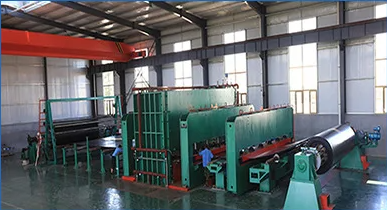The Essential Guide to Insulation PVC Tape Applications and Benefits
Insulation PVC tape, a reliable and versatile tool, plays a crucial role in both commercial and residential settings. Known for its robustness and excellent electrical insulation properties, this type of tape has become indispensable in various industries, including construction, automotive, and electronics. In this article, we will explore the unique features, applications, and benefits of insulation PVC tape.
Composition and Properties
Insulation PVC tape is primarily made from polyvinyl chloride (PVC), a synthetic plastic polymer. The tape is coated with an adhesive that provides excellent stickiness, ensuring it adheres well to various surfaces. One of the defining characteristics of PVC tape is its dielectric strength, which refers to its ability to insulate against electric current. This property makes it an ideal choice for electrical applications where safety and reliability are paramount.
Additionally, insulation PVC tape is resistant to moisture, chemicals, and UV rays, making it suitable for both indoor and outdoor use. Its flexibility allows it to wrap around odd-shaped objects and surfaces, ensuring comprehensive coverage and insulation.
Key Applications
1. Electrical Insulation The primary application of insulation PVC tape is in electrical wiring. Electricians widely use it to insulate electrical connections, preventing short circuits and electrical leaks. Its high dielectric strength provides protection against electrical shocks, making it essential for wiring jobs.
2. Bundling and Organizing Cables In both residential and industrial environments, it is common to find numerous cables and wires running together. Insulation PVC tape is used to bundle these cables neatly, reducing clutter and the risk of tripping hazards. This organization also helps in identifying different wires easily.
3. Repairing and Reconducting Insulation PVC tape can be used for temporary repairs, such as fixing worn-out wire insulation. By wrapping damaged wires with this tape, users can extend the life of their electrical components until a more permanent fix can be applied.
insulation pvc tape

4. HVAC Applications HVAC technicians often employ insulation PVC tape to seal ductwork. By ensuring that ducts are properly sealed, they can improve a building's energy efficiency and maintain optimal climate control. The tape’s resistance to moisture also prevents mold growth in air ducts.
5. Color Coding Insulation PVC tape comes in various colors, which can be used for color-coding electrical connections. This feature enhances visibility and safety, making it easier to identify circuits and prevent mistakes during installations or repairs.
Benefits
- Safety The foremost benefit of using insulation PVC tape is safety. It minimizes the risk of electrical accidents by providing insulation, thereby protecting users from electric shock.
- Durability Its robust material composition ensures resistance to wear, tear, moisture, and chemicals, granting it a long lifespan in various environments.
- Versatility Whether it's for electrical applications or general household repairs, insulation PVC tape is incredibly versatile. Its diverse range of uses makes it a vital tool for professionals and DIY enthusiasts alike.
- Ease of Use Insulation PVC tape is easy to handle. It can be torn by hand or cut with scissors, allowing for quick application. Its adhesive backing ensures a secure bond with minimal effort.
Conclusion
In summary, insulation PVC tape is a simple yet versatile tool that plays a vital role in many applications, particularly in electrical work. Its combination of durability, safety, and convenience makes it an essential item in toolboxes worldwide. Whether you are a professional electrician or a DIY enthusiast, having insulation PVC tape on hand can save you time, enhance safety, and ensure that your electrical projects are successful. Emphasizing quality when selecting PVC tape is crucial, as this ensures optimal performance and reliability – key factors in any insulation solution.
-
XIANGFAN Rubber Tape-Ultimate Solutions for All Your Insulation NeedsNewsJun.24,2025
-
XIANGFAN Rubber Tape-Protection for Industrial and Residential ApplicationsNewsJun.24,2025
-
XIANGFAN Rubber Tape: Superior Safety and Sealing for Demanding EnvironmentsNewsJun.24,2025
-
XIANGFAN Rubber Tape: Reliable Solutions for Every Electrical ChallengeNewsJun.24,2025
-
XIANGFAN Electrical & Industrial Tape: Powering Reliability Across IndustriesNewsJun.24,2025
-
XIANGFAN Electrical & Industrial Tape: Excellence in Every ApplicationNewsJun.24,2025
